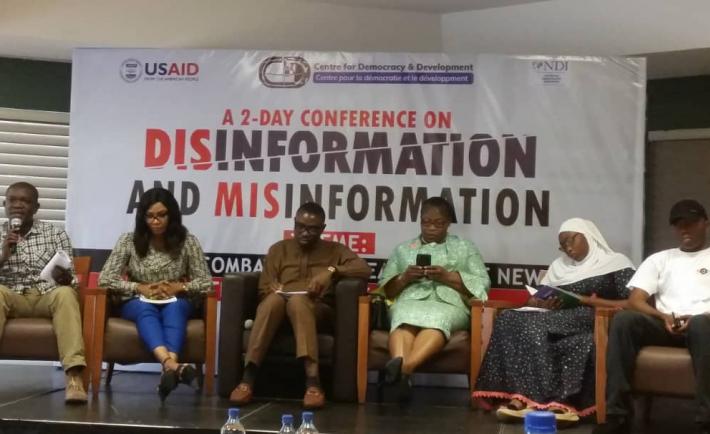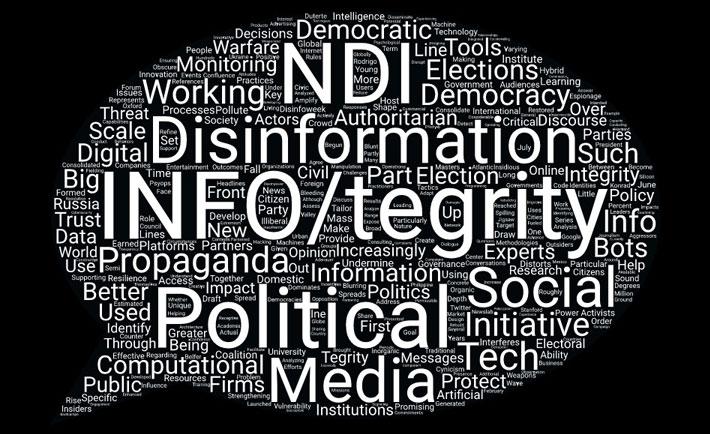
The findings of the "Sorting Fact From Fiction" report were presented at the two-day “Conference on Combating Disinformation and Misinformation” in Abuja
In February 2019, Nigeria went to the polls to elect its President, Vice President, House of Representatives and the Senate facing an exponentially growing volume of news and online information about the election and various campaigns, particularly of President Muhammadu Buhari and his challenger, Atiku Abubakar. Supported by USAID’s Electoral Empowerment for Civil Society Program, NDI worked with local partners in Nigeria at the Center for Democracy and Development to outline what happened online during the election and identify solution driven responses through fact checking, media literacy and research into the online environment.




